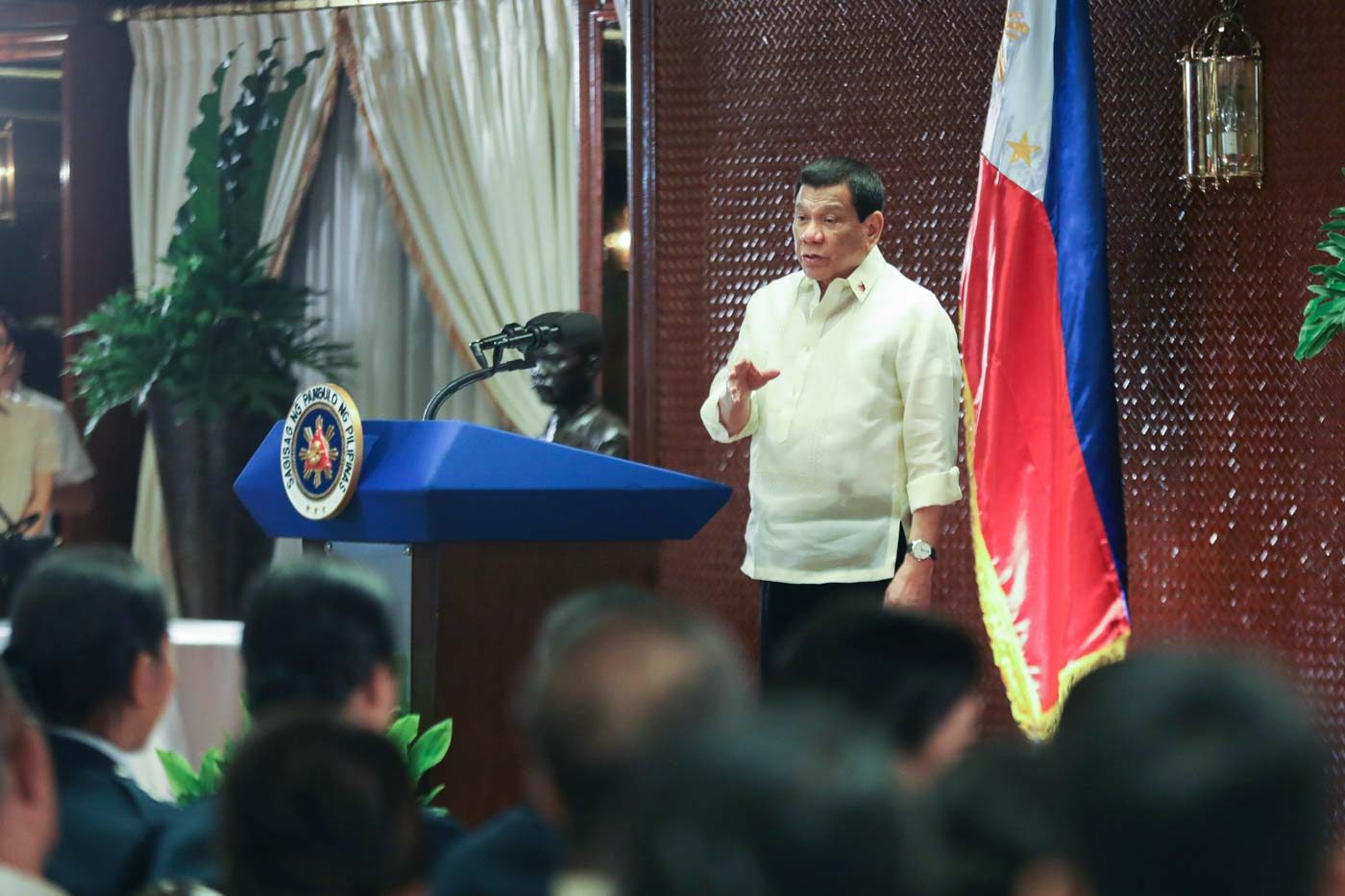SUMMARY
This is AI generated summarization, which may have errors. For context, always refer to the full article.

MANILA, Philippines – Nearly 3 years after he first broached the idea, President Rodrigo Duterte has issued an executive order prohibiting government officials and personnel to go on “junkets” and team-building activities abroad.
Duterte ordered this through Executive Order No. 77 signed on March 15 but uploaded on the official government website on March 21, laying down detailed rules governing local and foreign travels by government workers.
“All forms of travel junkets shall be strictly prohibited. The conduct of strategic planning workshops or team building activities abroad shall not be allowed,” reads Section 19 of the EO.
On May 19, 2016, the then president-elect first bared his plan to get rid of the practice of holding “seminars” and sending employees or local government officials to study trips abroad, calling them a waste of public funds. (READ: Duterte: No more ‘junket’ seminars for gov’t employees)
Duterte reiterated this in December 2017, leading to a memorandum of Executive Secretary Salvador Medialdea on January 3, 2018, providing guidelines on overseas trips of government officials and personnel.
On January 12, 2018, Duterte announced at the birthday party of then-Speaker Pantaleon Alvarez that he “just signed an Executive Order banning travel” in the executive branch but no such EO was issued at the time.
EO 77 provides more details on Duterte’s policy. Under the EO, taking personal leaves right before or after an official trip is “highly discouraged.” Taking such leaves has been used to sneak in a vacation using an official trip.
Duterte’s order explicity bars government officials and staff from going on a trip paid for in full or partially by suppliers or contractors with pending requests or applications, or future dealing with the government agency or unit they belong to.
This prohibition covers “invitations to travel purportedly to undertake study or assessment of the proponents’ capabilities as such contractors or suppliers,” reads the order.
Business-class travel
To minimize public expenses on travel, only certain officials are allowed to go on business class for air travel, and only for long-haul flights.
A long-haul flight is defined as lasting more than 4 hours, excluding time spent in lay-overs.
Those who can go on business class are department secretaries, undersecretaries, and assistant secretaries, but they still need the approval of the Office of the President (OP).
Thus, for flights 4 hours long or less, even Cabinet members have to take economy flights, which “does not include premium economy class,” reads the order.
All other government personnel taking long-haul flights have to ride economy.
However, the EO makes no mention of rules for chartering flights with private planes, something Duterte has done on several occasions, including for travels abroad.
Approval for trips
The OP has to approve the trips and travel budgets of department secretaries, chairpersons and members of governing boards, CEOs of government corporations and financial institutions, and heads of OP-attached agencies.
Department secretaries and CEOs of government corporations will have to greenlight trips of their personnel.
As for local government personnel, the interior secretary or representative will approve the trips.
Heads of state universitis and colleges need to get the approval of the Commission on Higher Education chairperson for their official travels.
Allowances, expenses
The EO lists set amounts for clothing allowance, daily subsistence allowance, and representation expenses.
Clothing allowance will be provided for trips lasting over a month. The budget is higher for such trips that take place during winter and autumn season in temperate countries.
Cabinet members get $1,000 to cover representation expenses. Undersecretaries who head a delegation get $700, assistant secretaries with the same role get $500, while those of lower rank who also head a delegation get $300. – Rappler.com
Add a comment
How does this make you feel?
There are no comments yet. Add your comment to start the conversation.